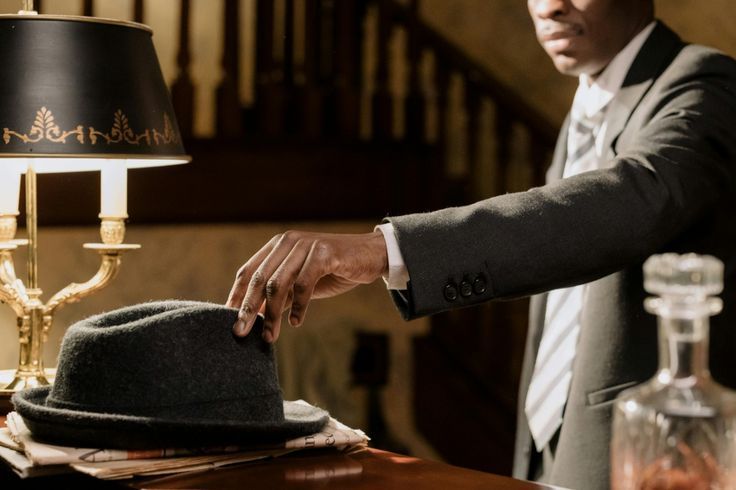The Role of Private Investigators in Legal Cases
When you think of a private investigator, what comes to mind? Maybe you picture a shadowy figure following a suspect through the streets or uncovering hidden truths in a high-stakes case. While there’s often some truth to those portrayals, the role of a private investigator in legal cases is far more comprehensive and integral to the legal process than you might imagine. In fact, private investigators (PIs) can play a crucial part in shaping the outcome of legal proceedings, offering services that law enforcement might not have the time or resources to provide.
In this article, we’ll walk you through the vital role private investigators play in legal cases. Whether you’re considering hiring one for a case of your own, or just curious about what they do, you’ll get a clear and practical understanding of how PIs contribute to legal strategies.
Why Hire a Private Investigator for Legal Cases?
When it comes to legal cases, having the right evidence is everything. While attorneys are experts in navigating the legal system, private investigators specialize in gathering the critical information needed to support a case. Let’s break down how PIs assist in different types of legal matters.
Investigating Legal Cases: Finding the Missing Pieces
You might be wondering how exactly a private investigator can assist in legal cases. One of their main roles is to gather evidence. Whether it’s a criminal defense, divorce case, or civil dispute, PIs use their skills and resources to uncover hidden details that can make or break a case.
Real-life Example: Imagine you’re involved in a civil lawsuit regarding a car accident. You believe the other driver is lying about the details of the crash. A PI can investigate the scene, interview witnesses, obtain surveillance footage, and gather other crucial evidence to support your claim.
Private investigators have access to specialized databases and resources that the average person, or even law enforcement, may not. This enables them to conduct background checks, uncover financial records, and track down witnesses who might otherwise remain elusive. Understanding the
Legal Framework Surrounding Private Investigations in Australia is essential to ensuring their work is admissible in court.
Background Checks: Digging Deeper into Personal Histories
One of the most common services offered by private investigators is conducting thorough background checks. In legal cases, this can include digging into a person’s criminal history, employment background, or financial status.
For example, if you’re involved in a custody battle, a PI can perform a background check on the other parent to look for any potential red flags, such as past abuse or criminal activity. In corporate legal cases, a PI can investigate a business partner’s history to uncover potential fraudulent activities.

How Private Investigators Help in Different Legal Cases
Criminal Cases: Building a Strong Defense or Prosecution
In criminal defense, private investigators can play a pivotal role in helping an attorney build a solid case. They don’t replace the police but work in parallel to provide additional resources, uncover missing evidence, and interview witnesses.
For example, in a wrongful conviction case, a PI might locate new evidence, re-interview witnesses who were not interviewed during the initial investigation, or track down exculpatory evidence that clears the defendant. This type of investigative work is often essential for securing a fair trial.
Real-life Example: A private investigator might uncover video footage of a crime scene that wasn’t initially discovered by law enforcement. This footage could exonerate a defendant or, conversely, provide evidence that strengthens the case against them.
Divorce and Family Law Cases: Ensuring Fairness and Protection
In divorce cases, private investigators often gather evidence to support or refute claims of infidelity, financial misconduct, or abuse. For instance, a PI might be hired to follow a spouse suspected of cheating to gather proof of infidelity. Additionally, in custody disputes, PIs can provide evidence regarding a parent’s behavior or lifestyle that may not be apparent during a court appearance.
Example of how PIs help in divorce cases:
- Surveillance of a spouse to confirm or deny allegations of infidelity.
- Investigating hidden assets or income sources that could affect property division.
- Gathering information about a parent’s lifestyle to support or dispute child custody claims.
The Basics of Surveillance in Private Investigation play a key role in such cases, as covert monitoring and tracking techniques often yield the most crucial evidence.
Civil Cases: Gathering Evidence for Litigation
In civil litigation, private investigators often gather key evidence to support claims of negligence, fraud, or breach of contract. For instance, in a personal injury case, a PI might gather surveillance footage or speak to witnesses to support the claimant’s version of events. Similarly, in business disputes, a private investigator can conduct due diligence or search for fraud and misrepresentation.
Example in civil litigation:
- In a slip-and-fall case, a PI might gather footage showing the state of the premises or talk to witnesses who saw the incident, adding weight to the claimant’s argument.
- In a breach of contract case, a PI could uncover documents or financial evidence proving that a business partner violated the agreement.

What Makes Private Investigators Unique?
Now, you may be wondering—what makes private investigators different from law enforcement? Here are a few factors that set them apart:
Specialized Knowledge and Training
Private investigators are trained to think critically, analyze complex situations, and gather information discreetly. They possess a unique skill set, including investigative techniques, surveillance tactics, and the use of cutting-edge technology, which enables them to uncover details that might be missed by others.
Discretion and Confidentiality
Private Investigators are bound by strict confidentiality agreements, ensuring that all the information they gather remains private. This is especially important in legal matters, where discretion is key to protecting sensitive information. Whether it’s a background check or a surveillance job, a PI’s ability to maintain secrecy is crucial.
Access to Tools and Resources
Private investigators have access to various tools, databases, and resources that may not be available to the general public or law enforcement. For instance, they can access detailed public records, perform asset searches, and tap into other investigative tools that help them gather accurate, up-to-date information quickly and effectively.

The Investigative Process: How Private Investigators Work with Attorneys
When you hire a private investigator for a legal case, they’ll typically work closely with your attorney to align their efforts with your legal strategy. The Private Investigator's job is to collect the necessary evidence, while the attorney uses that information to build the strongest possible case.
Steps in the Investigative Process
- Initial Consultation: The Private Investigator meets with the attorney to discuss the case, understand the goals, and determine what kind of information is needed.
- Gathering Evidence: The Private Investigator starts their investigation, using a variety of tools like surveillance, interviews, and public records searches.
- Report Findings: The PI provides the attorney with a comprehensive report, outlining the evidence gathered, its implications, and how it can be used in the case.
- Testifying in Court: If needed, the PI may testify in court about the evidence they gathered, offering their professional insight into the investigative process.


